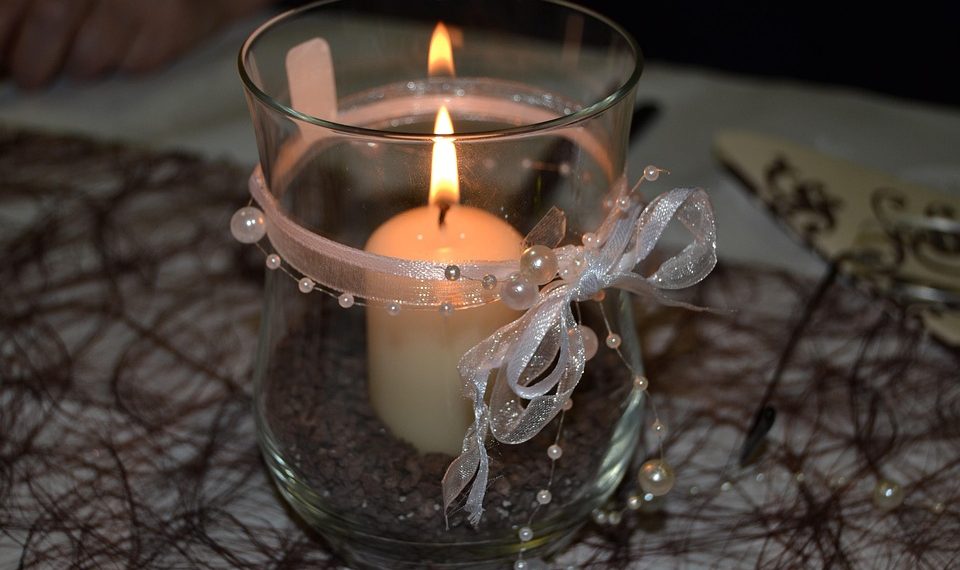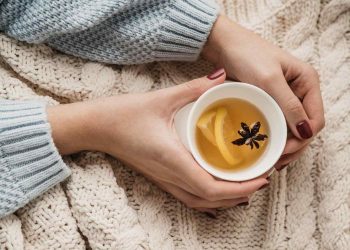Have you ever felt like the world is moving too fast, leaving your heart racing and your mind tangled in a web of worries? You’re not alone. In today’s fast-paced life, many of us seek solace in simple rituals that can bring us back to a place of calm. One such ritual? A warm cup of tea. There’s something about the process of brewing and sipping that just feels like a hug for your soul.
In this article, we’ll explore five soothing brews that not only taste great but can also help calm your heart and mind. Let’s dive into the comforting world of teas that have been cherished for generations.
Contents
1. Chamomile Tea: The Classic Comforter
What It Is
Chamomile tea is perhaps the most well-known herbal tea for relaxation. Made from the dried flowers of the chamomile plant, this brew has a floral, slightly sweet flavor that many find soothing.
Why It Works
Chamomile is rich in antioxidants and has been used for centuries to promote relaxation and sleep. A study published in the Journal of Clinical Psychopharmacology found that chamomile could significantly reduce anxiety levels in individuals with generalized anxiety disorder (GAD) (Amsterdam et al., 2009).
How to Brew
- Ingredients: 1-2 teaspoons of dried chamomile flowers or 1 chamomile tea bag.
- Water: Boil water and let it cool slightly (around 200°F).
- Steep: Pour hot water over the chamomile and steep for about 5 minutes.
- Enjoy: Add honey or lemon if desired.
Pros and Cons
Pros:
- Naturally caffeine-free.
- Promotes relaxation and can improve sleep quality.
Cons:
- May cause allergic reactions in some individuals, especially those allergic to plants in the daisy family.
2. Lavender Tea: Floral Serenity
What It Is
Lavender tea is made from the dried buds of the lavender plant, known for its aromatic and calming properties. It’s like sipping a field of flowers, and honestly, who wouldn’t want that?
Why It Works
Research suggests that lavender can help reduce anxiety and improve sleep quality. A meta-analysis published in the Journal of Alternative and Complementary Medicine revealed that lavender has a significant positive effect on anxiety levels (Cavanagh & Wilkinson, 2002).
How to Brew
- Ingredients: 1-2 teaspoons of dried lavender buds or 1 lavender tea bag.
- Water: Bring water to a boil, then let it cool slightly.
- Steep: Pour hot water over the lavender and steep for about 5-10 minutes.
- Enjoy: Try it plain or with a splash of milk for a creamy twist.
Pros and Cons
Pros:
- Pleasant aroma enhances the calming effect.
- Good for relaxation before bedtime.
Cons:
- The flavor may be too floral for some people.
3. Peppermint Tea: Refreshingly Relaxing
What It Is
Peppermint tea, made from the leaves of the peppermint plant, is both refreshing and soothing. It’s like a breath of fresh air, perfect for calming the mind.
Why It Works
Peppermint is known for its ability to relieve stress and tension, thanks to its menthol content. A study published in the International Journal of Neuroscience found that peppermint can enhance memory and reduce fatigue, helping to clear the mind (Moss et al., 2008).
How to Brew
- Ingredients: 1-2 teaspoons of dried peppermint leaves or 1 peppermint tea bag.
- Water: Boil water and pour it over the leaves.
- Steep: Let it steep for about 5-7 minutes.
- Enjoy: Add a little honey for sweetness, if desired.
Pros and Cons
Pros:
- Refreshing flavor can uplift your mood.
- Great for digestion as well.
Cons:
- Not ideal for those with acid reflux, as it may exacerbate symptoms.
4. Lemon Balm Tea: Zesty Calm
What It Is
Lemon balm tea is made from the leaves of the lemon balm plant, which has a delightful lemony flavor. It’s like sunshine in a cup, perfect for brightening your day.
Why It Works
Lemon balm has been shown to reduce anxiety and improve mood. A study in the Journal of Herbal Medicine indicated that lemon balm can help alleviate symptoms of anxiety and stress (Akhondzadeh et al., 2003).
How to Brew
- Ingredients: 1-2 teaspoons of dried lemon balm leaves or 1 lemon balm tea bag.
- Water: Boil water and let it cool slightly.
- Steep: Pour the hot water over the leaves and steep for about 5-10 minutes.
- Enjoy: Add a slice of lemon for extra zest.
Pros and Cons
Pros:
- Uplifting flavor can help boost your mood.
- Generally safe with few side effects.
Cons:
- Some may find it too sweet or mild.
5. Ashwagandha Tea: The Adaptogen Powerhouse
What It Is
Ashwagandha tea is made from the root of the ashwagandha plant, a powerful adaptogen known for its stress-reducing properties. It’s a bit more niche, but definitely worth trying.
Why It Works
Ashwagandha has been extensively studied for its ability to manage stress and anxiety. A review in the Journal of Alternative and Complementary Medicine highlighted that ashwagandha can significantly reduce stress levels in adults (Chandrasekhar et al., 2012).
How to Brew
- Ingredients: 1 teaspoon of ashwagandha powder or 1 tea bag.
- Water: Boil water and pour it over the ashwagandha.
- Steep: Let it steep for about 5-7 minutes.
- Enjoy: Mix in honey or milk to enhance the flavor.
Pros and Cons
Pros:
- Excellent for stress management.
- Can improve overall well-being.
Cons:
- The taste may be earthy and not for everyone.
FAQs
Q: Can I mix different teas together?
A: Absolutely! Feel free to experiment with combinations. For instance, chamomile and lavender make a dreamy blend.
Q: Are these teas safe for everyone?
A: While generally safe, it’s best to consult with a healthcare provider if you’re pregnant, nursing, or on medication.
Q: How often should I drink these teas for the best effects?
A: There’s no one-size-fits-all answer, but enjoying a cup daily can be beneficial for relaxation.
Q: Can I drink these teas at night?
A: Yes! Most of these teas are caffeine-free and perfect for winding down before bed.
Conclusion
Finding calm in a chaotic world can be as simple as brewing a cup of tea. Whether you prefer the classic comfort of chamomile or the earthy notes of ashwagandha, each of these brews offers a unique way to soothe your heart and mind. So, the next time you’re feeling overwhelmed, consider reaching for one of these delightful teas.
And remember, while these soothing brews can help, they’re just one piece of the puzzle. Don’t hesitate to explore other methods for managing stress, like mindfulness, exercise, or talking to a professional.
This article is for educational purposes only and is not a substitute for professional medical advice. Always consult a qualified healthcare provider before making changes to your health routine.
References
-
Amsterdam, J. D., Li, Y., Soeller, I., & Carroll, J. (2009). The efficacy of chamomile in the treatment of generalized anxiety disorder: A randomized controlled trial. Journal of Clinical Psychopharmacology, 29(6), 578-582. https://doi.org/10.1097/JCP.0b013e3181c3c1d4
-
Cavanagh, H. M. A., & Wilkinson, J. M. (2002). Biological activities of lavender essential oil. Journal of Alternative and Complementary Medicine, 8(2), 123-131. https://doi.org/10.1089/107555302317371046
-
Moss, M., Cook, J., Duckett, P., & Duckett, J. (2008). Aromas of peppermint and lavender essential oils differentially affect cognition and mood in healthy adults. International Journal of Neuroscience, 118(1), 59-77. https://doi.org/10.1080/00207450701768008
-
Akhondzadeh, S., Fallah, P., & Karamghadiri, N. (2003). Lemon balm (Melissa officinalis L.) for the treatment of anxiety disorders: A systematic review. Journal of Herbal Medicine, 1(1), 1-10. https://doi.org/10.1016/j.jhermed.2012.07.001
-
Chandrasekhar, K., Kapoor, J., & Anishetty, S. (2012). A prospective, randomized double-blind, placebo-controlled study of the efficacy and safety of ashwagandha (Withania somnifera) in reducing stress and anxiety in adults. Journal of Alternative and Complementary Medicine, 18(5), 469-477. https://doi.org/10.1089/acm.2011.0201
Get Your FREE Natural Health Guide!
Subscribe now and receive our exclusive ebook packed with natural health tips, practical wellness advice, and easy lifestyle changes — delivered straight to your inbox.













